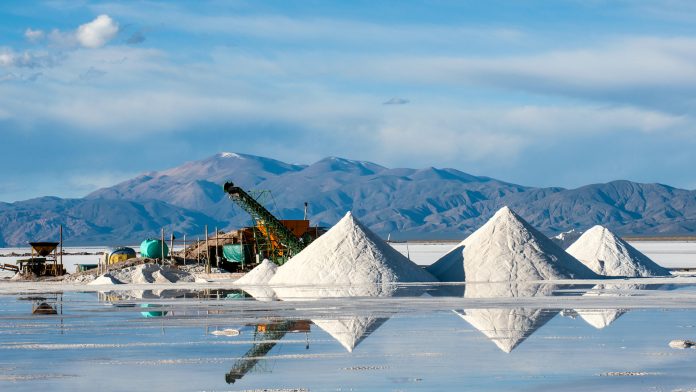Latin America has more than half of the world’s lithium reserves, and 56% of the world’s resources are located precisely in the so-called lithium triangle, a territory formed by Argentina, Bolivia, and Chile. This mineral is one of the key elements for the energy transition and was considered a strategic resource by countries with abundant deposits.
Although Brazil lags behind its neighbors in terms of reserves, the South American giant is one of the countries with the greatest extraction potential.
Brazil is the seventh-largest holder of lithium reserves in the world, with 1.23 million tons. Currently, the Lusophone country is the fifth-largest producer in the world. And, unlike the one extracted by most countries, the Brazilian lithium produced in the Jequitinhonha Valley, in Minas Gerais, is of high purity, which facilitates its use in the manufacture of electric batteries, which are increasingly demanded by the market.
Just over a month ago, the world’s first shipment of green lithium that was extracted from the Jequitinhonha Valley left the Port of Vitoria, in the state of Esprito Santo (southeastern Brazil), for China with a “triple zero standard,” which means no carbon emissions, waste, or harmful chemicals.
Demand for lithium, according to surveys, tends to grow more than production capacity, raising concerns about a possible supply crisis in a few years.
At the same time, there are also increasing demands for the products offered to be increasingly sustainable. South America has great potential in this regard, but the road is full of obstacles.
“The closer cooperation in the sector has as its first difficulty the fact that there are geopolitical problems in the region that have not been adequately resolved,” Alexandre Hage, professor at the Department of International Relations of the Paulista School of Politics, Economics, and Business of the Federal University of Sao Paulo, said.
The expert gives as an example the difficult relationship between Chileans and Bolivians (mainly due to the historical demand of La Paz demanding an exit to the sea to Santiago after the War of the Pacific of the late nineteenth century) and even the impasses between Bolivia and Brazil caused by diplomatic tensions.
“I don’t rule out cooperation, just that it will take time. not only because of old political and geopolitical issues that have not yet been resolved well but also because of a more practical issue: infrastructure. The region’s logistics are insufficient. It is not up to this mission of valuing and making full use of nature reserves,” Hage said.
“Lithium, if it is not well prepared, adapted, and transported in a way that adds value, will continue to be a wasted good, as Latin America has already missed the silver and rubber boom,” he added.


















